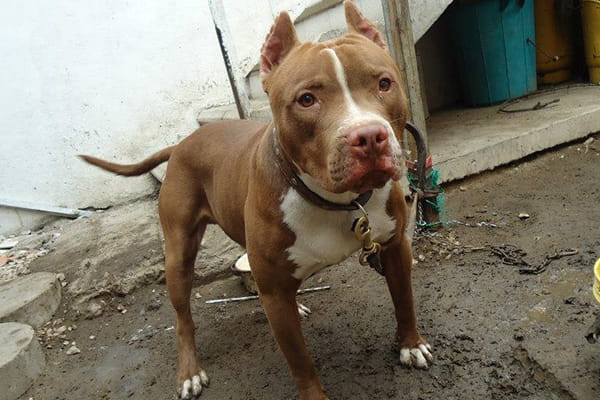Q&A With Jennifer Britton: Dornsife Center Partners With PSPCA

But Drexel knows the city can’t only accommodate for humans—it must remember Philadelphia’s furry friends.
The Dornsife Center and the Pennsylvania Society for the Prevention of Cruelty to Animals (PSPCA) recently partnered to provide community members with the facilities and knowledge they need to care for their pets. The new program will also establish outreach initiatives to address animal cruelty.
DrexelNow checked in with Jennifer Britton, the associate director of Drexel’s new Lindy Institute for Urban Innovation as well as the interim director of the Dornsife Center, to learn more. Britton is also a pet owner—some cats, some fish and a horse—and a wildlife photographer, making the opportunity to include animals in the neighborhood programming “especially exciting,” she said.
Why did Drexel decide to partner with PSPCA?
The folks at the Pennsylvania SPCA approached us when we began planning in earnest for partnerships and programming at the new Dornsife Center for Neighborhood Partnerships. Drexel is sharing this site with our neighborhood stakeholders in Mantua and Powelton Village as a place for creative collaboration and as a platform for neighborhood transformation. One of the special areas of interest is health, and we are approaching the notion of health from a broad perspective: We’re not just thinking about a collection of individual-person health indicators but also about neighborhood-level health—the quality of the built environment, access to educational resources and jobs, incidence of violence and so on. We think of companion animals as important parts of this community-health fabric.
The PSPCA shares similar ambitious and transformative goals as it strategizes to significantly lower the rates of animal surrender and seizure in Philadelphia, and we saw an opportunity to work together on a neighborhood-level model for helping families manage both the benefits and the risks of having pets at home as part of a larger consideration of healthy homes and neighborhoods.
What are the objectives of the program?
Our partnership has a couple of focus areas. One part is to bring easy access to veterinary care right to the Dornsife Center. We’re working with PSPCA to bring its mobile units for pet vaccination and neutering to our site as part of a suite of health-promotion services and activities. We know that the costs of keeping pets healthy can sometimes put a family’s budget at risk, and with this piece of the programming we want to help pet owners care for their animals without breaking their often limited budgets—at the same time reducing abandonment and surrender to shelters. For senior citizens, this is especially important. A report that the Philadelphia Corporation on Aging recently released finds that about 40 percent of seniors in the city own dogs or cats, and that they sometimes have difficulties caring for them. We want to create a model with our neighbors for helping families care for their furry companions as part of a broader approach to healthy homes and aging-in-place for seniors.
We are also working with PSPCA to connect interested kids in the neighborhood with activities and education around animal welfare issues, including working directly with animals through our Mantua In Action program for middle-schoolers. Offering opportunities for hands-on advocacy and animal training, we think, can help our participants be positive role models in terms of caring for companion animals.
Are there many animal cruelty cases in West Philadelphia?
The PSPCA responds to cruelty complaints in all parts of the city, including West Philadelphia. In the past few years they have had several high-profile cases including hoarding and animal fighting in the area. PSPCA is working to address animal cruelty around both Philadelphia and Pennsylvania, but we are strategizing with them to use small group settings on a neighborhood level to achieve the most impact. The Pennsylvania SPCA partners with numerous community-based organizations, schools and recreation programs to provide humane education, and the partnership with Drexel at the Dornsife Center will offer a platform for ongoing, locally intensive outreach.
Why is it important to educate the community about animal abuse issues?
Humane education is important for several reasons. As I mentioned, companion animals are part of the fabric of our community and are important members of many families. We know that crimes against animals are also associated with crimes against people and other unlawful activity. Animal fighting, for example, is terribly abusive to the animals, but it is also associated with narcotics, illegal weapons exchanges, gambling and other activities that many neighborhoods are trying to combat. In hoarding cases, not only do the hoarded animals suffer from living in unsanitary and inhumane conditions, but it is also linked to the mental and physical health of people. Animal cruelty is also closely correlated with intimate partner and family violence. Addressing animal cruelty and neglect is very much about dealing with the health and wellbeing of families and neighborhoods.
How are you spreading the word/getting people (students, community members) involved with the partnership?
Through the Dornsife Center, we are building a comprehensive neighborhood engagement effort, and are currently developing a representative community advisory council following a stakeholder-planning workshop that we hosted in April. That council will help us get the word out to our constituent groups, which include neighborhood youth, seniors, residents of Mantua and Powelton Village, the faith community, local service NGOs, city agencies serving the neighborhoods, and so on. We also have staff members who are working directly with neighbors to share information about local needs and interests and about Dornsife Center programming.
In This Article
Drexel News is produced by
University Marketing and Communications.
